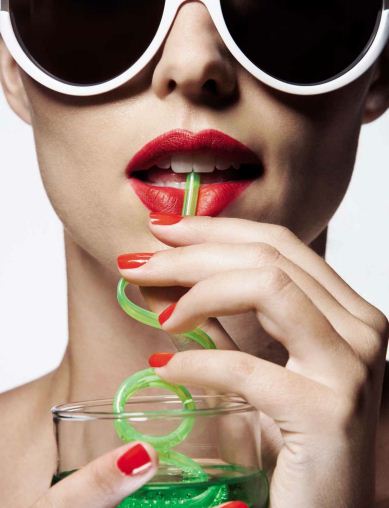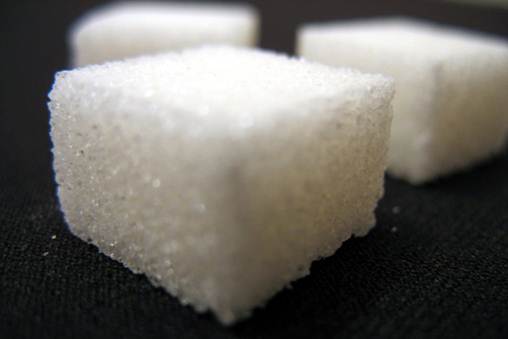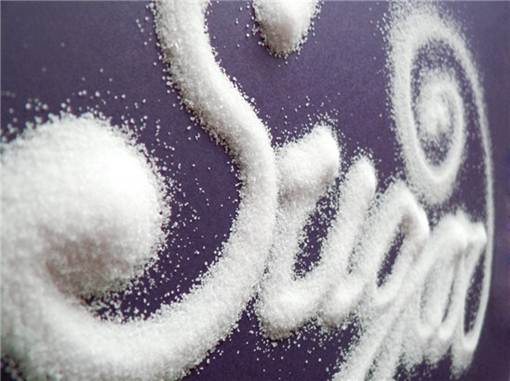Are you speeding up your skin’s expiry date
without realizing it?
No one tells you this when you’re young
(actually, that‘s not true — you probably weren‘t listening), but when you get
to a ‘certain age’, your body continues to grow older, while your inner self
stays stuck somewhere between the 30 and 40 mark.
You begin to feel like a young person
trapped inside an ageing body. It always comes as a surprise, and it’s never a
pleasant one.

You
begin to feel like a young person trapped inside an ageing body. It always
comes as a surprise, and it’s never a pleasant one.
While technically it’s impossible to
actually slow down the ageing process (every cell in your body, including your
skin, has an expiry date coded into the DNA), there’s a lot you can do to
prevent it from speeding up!
It‘s no secret that lifestyle and
environmnental factors can have a huge impact on how fast you age — we take a
look at the major culprits:
Death by sugar
When you eat carbohydrates of any kind,
from adding sugar to your tea to enjoying a bowl of pasta, they are ultimately
broken down into glucose, the main fuel source for your body.
The problem comes in when there’s too much
of it in your body. This excess glucose is bad news for proteins, particularly
collagen, the substance that gives skin its resilience and strength.
Those who have high blood sugar levels ...
tend to have more skin damage, and their skin is more prone to early signs of
ageing,’ comments UK nutrition expert Patrick Holford.

The
problem comes in when there’s too much of it in your body.
US-based dermatologist Dr Nicholas
Perricone agrees. He blames a sugary diet for the onset of low-level chronic
inflammation, which can show up on the skin as dullness, dark circles under the
eyes. a loss of tone, blotchiness, puffiness and an increase in lines and
wrinkles, he says. ‘I am not exaggerating when I say that sugar can rob you of
your youth, health, and beauty.’
Holford recommends including essential fats
found in nuts, seeds and oily fish as well as a ready supply of colourful veg
and fruit in your diet. You don’t have to cut out carbs altogether either, but
you do need to shelve the fast-release ones (sweets and processed carbs) and
rather opt for slow-release ones like whole grains.

‘I
am not exaggerating when I say that sugar can rob you of your youth, health,
and beauty.’
He also recommends an antioxidant
supplement containing vitamins A, C, E, zinc and selenium. as well as an
essential fatty acid supplement like linseed, fish or evening primrose oil.
Topically, Perricone recommends using a
product that includes alpha lipoic acid. DMAE (which stabilizes cells and
strengthens them against the onslaught of free radical damage) and vitamin E,
which is another natural antioxidant.
The dark side of the sun
If you didn’t already know (i.e. you have
been living on the moon), listen up: the sun is not your skin’s BFF. If you
want to prevent further damage, avoid direct sunlight as far as possible
between 11am and 3pm, ‘Over time, UV damage destroys the underlying collagen in
skin.’ explains Dr Anushka Reddy, president of the South African Association of
Cosmetic Doctors. ‘Intense pulsed light (IPL) can lighten sun-damaged skin, and
dermal fillers can sometimes stimulate new collagen formation for plumping
effect on the skin.’

The
sun is not your skin’s BFF
Choose a sunscreen that also contains
antioxidants to combat UVA damage, and Dr Reddy recommends using skincare
products with vitamin A and vitamin C.
Uneven terms
It’s a myth that darker skins are immune to
sun damage. Not only can dark complexions succumb to the signs of photo-ageing
such as wrinkles and a change in texture and sagging, they can also end up with
uneven pigmentation.

It’s
a myth that darker skins are immune to sun damage.
A course of superficial chemical peels
using glycolic or salicylic acid should help to counteract any uneven skin
tone, says Dr Reddy. ‘Topical skincare products containing low doses of
hydroquinone [available on prescription only], retinoic acid, azelaic acid,
kojic acid and vitamin C may also be helpful.’
Make sure your skin is adequately protected
from the sun by using a broad-spectrum sunscreen with SPF3O advises Dr Reddy:
and stay indoors between I lam and 3pm.
Hormonally yours
Of all the hormones, perhaps the most
noticeable effects on the skin come from declining oestrogen levels around
menopause. This group of hormones keeps the skin soft. hydrated and plump. They
also function in a similar way to antioxidants by protecting the skin from sun
damage, and play a role in the formation of new cells. As levels naturally
taper off, women notice a distinct thinning, loss of elasticity, dryness and
increase in sensitivity and fragility of the skin.
Bioidentical hormone therapy helps to
reduce the signs of ageing, explains Dr Craige Golding. specialist anti-ageing
physician at the Integrative Medical Centre in Johannesburg.
He also suggests skin-enhancing supplements
that contain nutrients like collagen, vitamin E and A, biotin, silicone and
zinc to nourish the skin from the inside out.